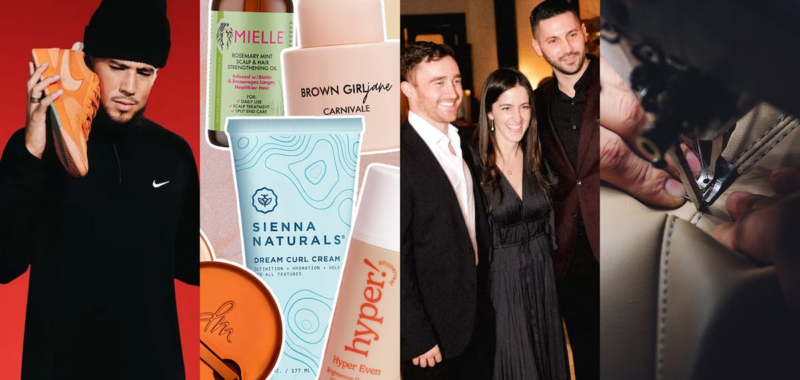
The author has shared a Podcast.You will need to accept and consent to the use of cookies and similar technologies by our third-party partners (including: YouTube, Instagram or Twitter), in order to view embedded content in this article and others you may visit in future.
Subscribe to the BoF Podcast here.
Background:
As the year comes to a close, BoFâs executive editor Brian Baskin and senior correspondent Sheena Butler-Young look back on some of their favourite articles from 2024. The stories include topics that dominated industry conversations throughout the year, as well as some that have had key updates since publication.
The four articles they discuss are âHow Nike Ran Off Courseâ by sports correspondent Daniel-Yaw Miller, Butler-Youngâs three-part Black beauty series, âThe Fight for Influencer Marketing Dollars Heats Upâ by senior news and features editor Diana Pearl and âInside Luxuryâs Italian Sweatshops Problemâ by sustainability correspondent Sarah Kent. The conversation wraps up with a set of predictions for whatâs to come in 2025.
Key Insights:
- Millerâs âHow Nike Ran Off Courseâ topped the list of key stories from 2024. It was a trying year for the brand, marred by declining sales quarter after quarter. Many pointed to former CEO John Donahoe as the source, with marketing and product feeling stale since he joined in 2020. âThis was the year where it really crystallized that there were viable alternatives to Nike in the market,â said Baskin, with competitors encroaching from all sides. Looking ahead, Butler-Young said âNike is not resting on its laurelsâ and is doing a lot to try to âturn around a very large ship,â starting with selecting a new CEO, longtime Nike executive Elliott Hill.
- Butler-Youngâs series on Black-founded beauty brands included three parts: How to Launch a Black Beauty Brand, How to Scale as a Black Beauty Brand and How to Raise Money as a Black Beauty Brand. The series examined how Black founders like Mielleâs Monique Rodriguez and Danessa Myricks have innovated and found success with their brands in a difficult year. â2024 challenged a lot of Black founders to keep their businesses viable. Thereâs a lack of funding and investment alongside the high cost of retail partnerships,â said Butler-Young. âBrands started to shutter at a rapid clip this year.â The stories provide readers with key pieces of advice, centering on taking time to grow, not all investment being good investment and the fact that itâs okay to pivot branding, categories and other aspects of the business.
- According to Baskin, this was the year of affiliate marketing becoming âone of the primary ways that a huge swath of the creator economy and fashion media and beauty media made money in 2024 and theyâve become increasingly dependent on it.â In Pearlâs piece, âThe Fight for Influencer Marketing Dollars Heats Up,â she explored influencer marketing platform LTK suing ShopMy, a new rival whose key differentiator is giving creators more data as well as the freedom to work directly with partner brands rather than going via ShopMy. LTK dropped the lawsuit in September, right after making their product more similar to ShopMy, effectively handing âthe keys to this market over to the creators,â said Baskin.
- Sarah Kentâs story, âInside Luxuryâs Italian Sweatshops Problem,â digs into this yearâs viral scandal surrounding luxury brandsâ labour practices. âIt found that luxury brands that manufacture in Italyâ¦routinely turn a blind eye to labour exploitation in their supply chain,â said Butler-Young. âThey ignore red flags raised by audits and sustainability teams for the sake of convenience and cost.â Dior in particular faced social media backlash for âthe disparity between what people pay for products and then some of the things that happen in the supply chain,â said Butler-Young. Next year, brands will face penalties for failing to comply with new European due diligence regulations.
- Baskin and Butler-Young shared predictions for the industry in 2025. For Butler-Young, ESG and DEI will be key to watch as they âattempt to continue to take shape in a very hostile political environment,â said Butler-Young. Early adopters of DEI who stick with it despite ebbs and flows might benefit by being the most innovative in the space down the line. For Baskin, âMy prediction is one of these big struggling brands ⦠is going to successfully pull out of its slump,â he said, pointing to Nike as a potential winner.

